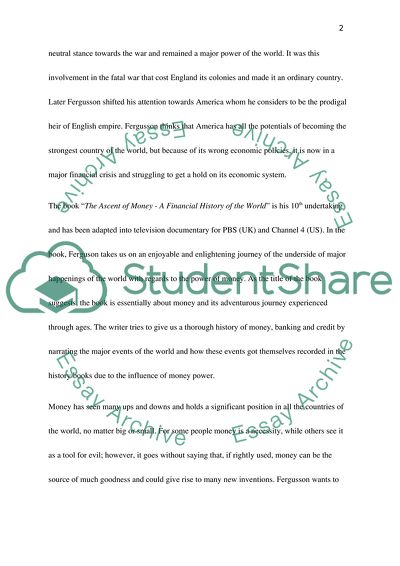Cite this document
(Analysis The Ascent of Money by Niall Ferguson Book Report/Review, n.d.)
Analysis The Ascent of Money by Niall Ferguson Book Report/Review. Retrieved from https://studentshare.org/macro-microeconomics/1763338-book-review-title-the-ascent-of-money-by-niall-ferguson
Analysis The Ascent of Money by Niall Ferguson Book Report/Review. Retrieved from https://studentshare.org/macro-microeconomics/1763338-book-review-title-the-ascent-of-money-by-niall-ferguson
(Analysis The Ascent of Money by Niall Ferguson Book Report/Review)
Analysis The Ascent of Money by Niall Ferguson Book Report/Review. https://studentshare.org/macro-microeconomics/1763338-book-review-title-the-ascent-of-money-by-niall-ferguson.
Analysis The Ascent of Money by Niall Ferguson Book Report/Review. https://studentshare.org/macro-microeconomics/1763338-book-review-title-the-ascent-of-money-by-niall-ferguson.
“Analysis The Ascent of Money by Niall Ferguson Book Report/Review”, n.d. https://studentshare.org/macro-microeconomics/1763338-book-review-title-the-ascent-of-money-by-niall-ferguson.


